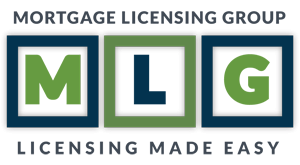Surety Bonds: What Are They and How Can They Protect You?
 Anyone working in the mortgage brokering, lending, or real estate industry is likely to come across the term surety bond, and many of these individuals will need to secure one. This article takes an in-depth look at exactly what surety bonds are and how they can help protect individuals working in these industries including new prospects looking into mortgage broker licensing to get credentialed.
Anyone working in the mortgage brokering, lending, or real estate industry is likely to come across the term surety bond, and many of these individuals will need to secure one. This article takes an in-depth look at exactly what surety bonds are and how they can help protect individuals working in these industries including new prospects looking into mortgage broker licensing to get credentialed.
What is a Surety Bond?
At its essence, a surety bond is an agreement that involves three parties. They are the:
- Principal: This is the individual or organization in need of the bond. They purchase a surety bond to guarantee the performance of their work. They are then obligated to comply with state laws and regulations that apply to their specific business license or meet the terms outlined in a contract that defines the scope of work to be done.
- Surety: A surety is the entity (usually, insurance company) issuing the bond, which provides a financial guarantee to the obligee. The bond provides funding if a principal fails at their outlined performance tasks.
- Obligee: This is the governmental agency or other entity requiring the bond. Obligees are generally governmental agencies that regulate specific industries.
The bond itself serves as a contract in which the surety guarantees to an agency that the principal will act in accordance with the terms established in the bond, including any relevant regulations, laws, or contractual agreements required by the obligee. If the principal fails at any of their required duties, the surety will then pay the obligee the amount of their claim, which can be up to, but not exceeding, the amount of the bond. The principal would then be expected to repay the claim amount to the surety, similar to a form of credit.
What Happens When There is a Claim?
When bonded, the principal acknowledges that they understand and can comply with the specific regulations that are outlined within either their license or the applicable contract. Violations can include activities such as misrepresentation, failure to meet contractual requirements and deadlines, fraud, or late payments. If the violation may not be resolved through other courses of action, then the surety would be required to pay the obligee the amount of the claim.
Bonded professionals generally take all steps possible to avoid having a claim against them, as it can tarnish their reputation within the industry. When a claim initially arises, it is the principal’s responsibility to attempt to settle the dispute prior to the surety paying on the claim. If a claim is paid, the surety then expects to be fully reimbursed. Once a claim has been paid, it may be difficult for the professional to become bonded once again, as a previously paid claim is a common reason for sureties to decline a bond application.
How Can a Surety Bond Protect Me?
A surety bond is required for all individuals working in the mortgage brokerage business. While there is a misconception by many that a surety bond is similar to business insurance, the reality is that they function more like insurance for customers (to ensure that you are operating lawfully). For the principal, a surety is more like a line of credit that they would tap into if they committed a violation; the principal is required to pay it back. For this reason, all mortgage brokers are also required to have business general liability coverage to protect their business from elements that would be covered by insurance.
Given this distinction, the most apparent protection benefit is to the end consumer, as they are protected from fraud or malpractice. However, there are benefits to the principal as well. Securing bonding – along with the promise to repay a valid claim – is often a major incentive for the principal to take the time to more thoroughly understand the applicable laws and regulations, as well as any relevant contractual obligations. Gaining this understanding increases the likelihood of compliance, which can serve to not only help the principal avoid a claim, but it can often decrease the risk of dissatisfied customers, HR violations, and even workplace injuries.
In addition to this, securing a surety bond also reduces the risk of having a lien filed against you due to circumstances in which a claim can be paid instead. Once you are bonded, you will also realize several key benefits to your business, including increased customer confidence and a reduction in the amount of unqualified competition that you may face. Ultimately, while securing a surety bond can seem like a hassle, it is well worth it in terms of personal protection and business value.
The Mortgage Licensing Group, Inc. is a full-service mortgage licensing firm headquartered in Southern California that is recognized throughout the industry as an experienced and reliable service provider. Established in 2006, our company has been on the forefront of the ever-changing rules and regulations, helping alleviate the often daunting task of meeting the diverse state licensing requirements for our clientele.

